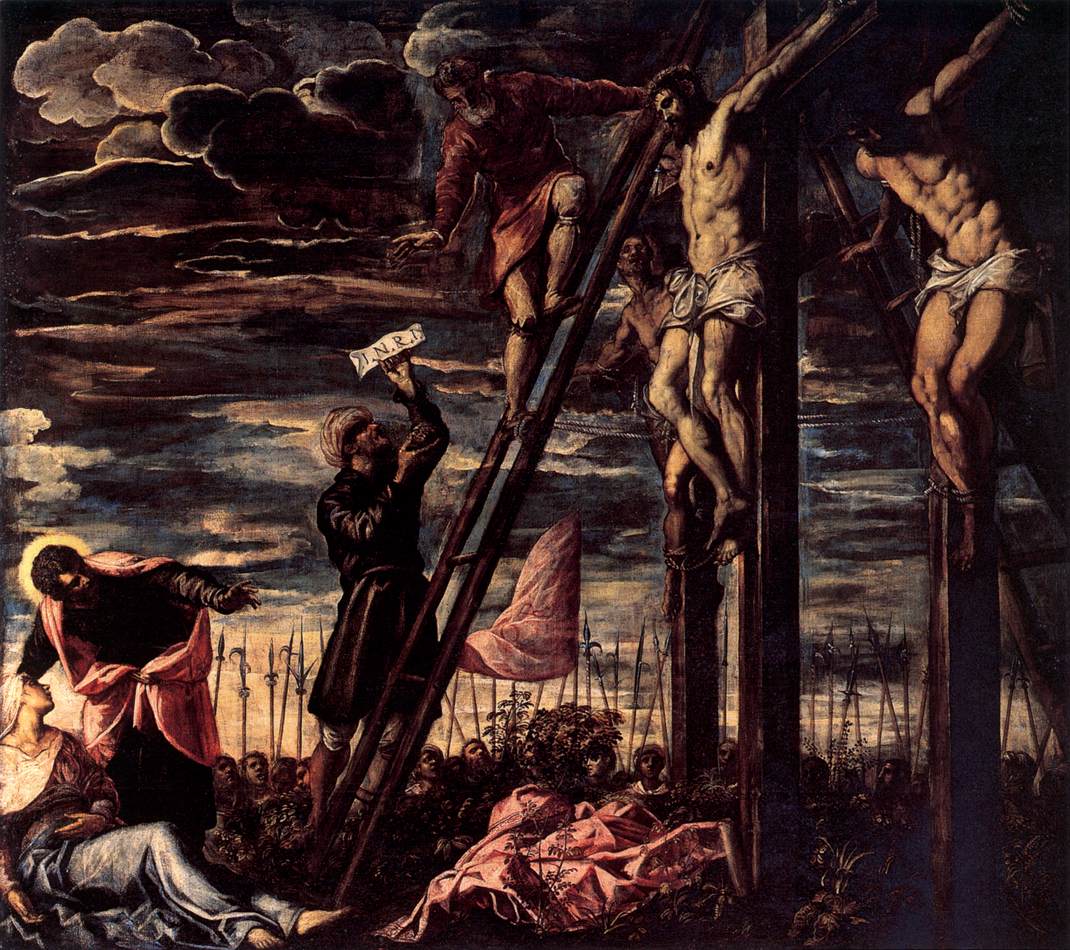Description
The Crucifixion of Christ, painted by Tintoretto, is a masterpiece that captivates the viewer with its unique artistic style, composition, and use of color. Measuring 341 x 371 cm, this painting is a remarkable example of Tintoretto's skill and innovation.
One of the most striking aspects of this artwork is Tintoretto's distinctive artistic style. He was known for his dramatic and dynamic compositions, which are evident in this piece. The figures are elongated and seem to be in motion, creating a sense of energy and intensity. Tintoretto's use of light and shadow adds depth and dimension to the scene, enhancing the emotional impact of the crucifixion.
The composition of The Crucifixion of Christ is carefully structured to draw the viewer's attention to the central figure of Christ on the cross. Tintoretto places Christ at the center of the painting, surrounded by a chaotic crowd and dramatic landscape. This composition reinforces the significance of Christ's sacrifice and highlights the emotional turmoil of the moment.
In terms of colour, Tintoretto employs a rich and vibrant palette. The use of deep reds and blues adds to the intensity of the scene, while golden hues symbolize divine light and transcendence. Tintoretto's skillful handling of color creates a visually captivating and emotionally charged atmosphere.
The history of this painting is also intriguing. Tintoretto created The Crucifixion of Christ in the late 16th century for the Scuola Grande di San Rocco in Venice. It was intended to be displayed in the Sala dell'Albergo, a room where the confraternity of the Scuola met. The painting was commissioned to commemorate the fellowship's dedication to the Passion of Christ.
One lesser-known aspect of this artwork is the presence of hidden symbolism. Tintoretto often incorporated allegorical elements into his paintings, and The Crucifixion of Christ is no exception. For example, the presence of a skull at the foot of the cross represents Golgotha, the biblical place of the crucifixion. These subtle details add layers of meaning and invite further exploration and interpretation.
In conclusion, The Crucifixion of Christ by Tintoretto is a remarkable painting that showcases the artist's unique style, composition, and use of color. Its historical significance and hidden symbolism make it a fascinating artwork to study and appreciate.

